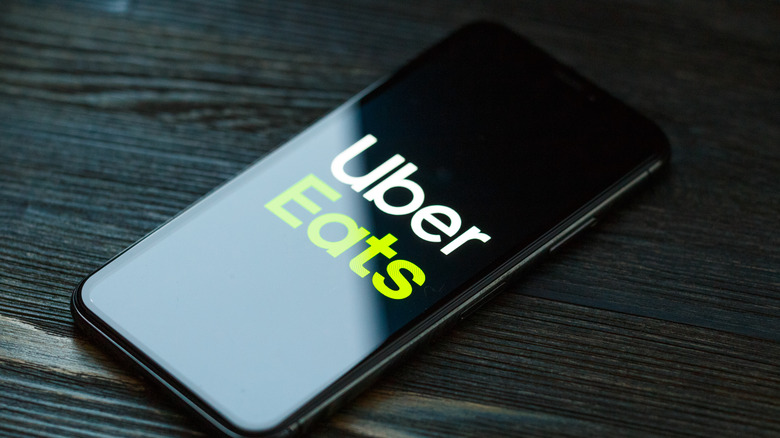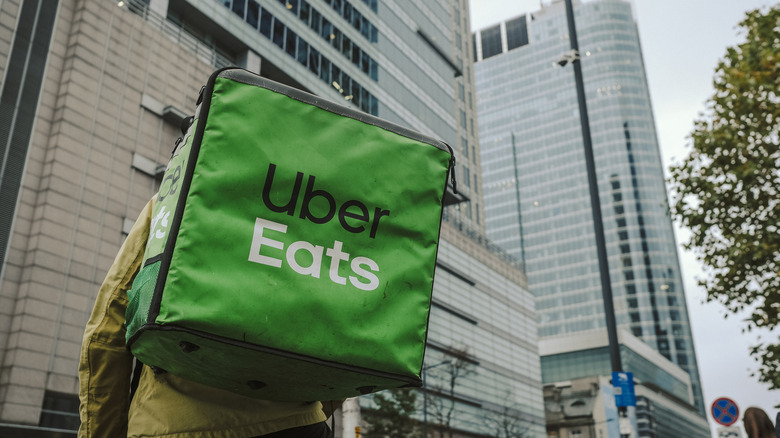Uber Eats' Latest Deal Is A Big Win For Drone-Powered Food Delivery
While one pizza brand might have once relied on the concept of delivery in 30 minutes or less, food delivery in a reasonable amount of time is a requirement, not just a lofty expectation. Although worker shortages have impacted many aspects of the food industry, consumers continue to want convenient delivery. As reported by CNN.com, Uber Eats partnered with Cartken to take to the streets with drone-driven robots. Soon to be roaming a Miami neighborhood, the expansion into automated and autonomous technology is more than just a kitschy concept. The devices are equipped to avoid obstacles, can roam most sidewalks, and are opened via a smart device.
As reported by the Miami Herald, Uber Eats believes that this drone-powered food delivery will offer more reliable delivery. In addition, the use of robots could make the service more affordable to both the consumer and the merchant. Cartken CEO Christian Bersch believes that this concept will make for "more connected communities." While the robotic delivery service can have a positive environmental impact, lessen delivery times, and increase efficiency, consumers will ultimately have the final say on whether they want a robot or Robert to bring that food delivery.
Is autonomous food delivery replacing the delivery driver?
With the recent Uber Eats and Cartken partnership, robots roving the sidewalks might become more of a common sight. As seen over the past couple of years, the food industry has been hit hard by worker shortages. Given that autonomous food delivery does not require a person behind the wheel, AI-forward technology could be a viable solution.
Engadget reported that Uber Eats has made several investments in robot-driven technology. Motional and Serve Robotics had pilot programs in Los Angeles. In addition, there is a 10-year deal with Nuro for autonomous delivery programs in California and Texas. While Uber Eats is championing this concept, the company is not alone. Recently, Grubhub announced another robotic delivery expansion on college campuses. Whether or not this idea looks like a scene from a science fiction movie or just a sign of the times, consumers may care less about the method and more about the food arriving in a timely, correct fashion. After all, the bottom line is about convenient, good-tasting food, not how the food gets from point A to point B.

